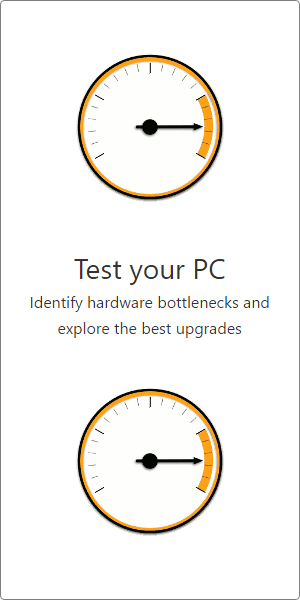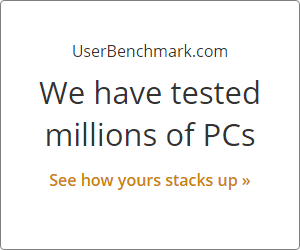Effective Speed
+14%
Poor: 91%
Great: 104%
SPEED RANK: 66th / 714
Poor: 77%
Great: 94%
SPEED RANK: 82nd / 714
| Effective 3D Speed
Effective 3D Gaming GPU Speed |
98.3 % | Faster effective speed. |
86.6 % |
Average Score
+19%
Overclocked Score
+18%
Game FPS
+16%
 CSGO CSGO
Avg. Fps @ 1080p on Max |
242 Fps | Slightly Better CSGO Fps. |
223 Fps | |||
 Fortnite Fortnite
Avg. Fps @ 1080p on Max |
167 Fps | Much Better Fortnite Fps. |
121 Fps | |||
 PUBG PUBG
Avg. Fps @ 1080p on Max |
94 Fps | 104 Fps | Better PUBG Fps. |
|||
 GTAV GTAV
Avg. Fps @ 1080p on Max |
117 Fps | Much Better GTAV Fps. |
88 Fps | |||
 LoL LoL
Avg. Fps @ 1080p on Max |
225 Fps | Better LoL Fps. |
194 Fps | |||
 Overwatch Overwatch
Avg. Fps @ 1080p on Max |
135 Fps | Slightly Better Overwatch Fps. |
127 Fps | |||
 The Witcher 3: Wild Hunt The Witcher 3: Wild Hunt
Avg. Fps @ 1080p on Max |
115 Fps | Much Better The Witcher 3: Wild Hunt Fps. |
88 Fps | |||
 Minecraft Minecraft
Avg. Fps @ 1080p on Max |
215 Fps | Slightly Better Minecraft Fps. |
202 Fps |
Value & Sentiment
+434%
Nice To Haves
+22%
Conclusion
Average Bench 98.3%
Average Bench 86.6%
User Builds
254,908
91,676
Systems with these GPUs
Top Builds that include these GPUs


